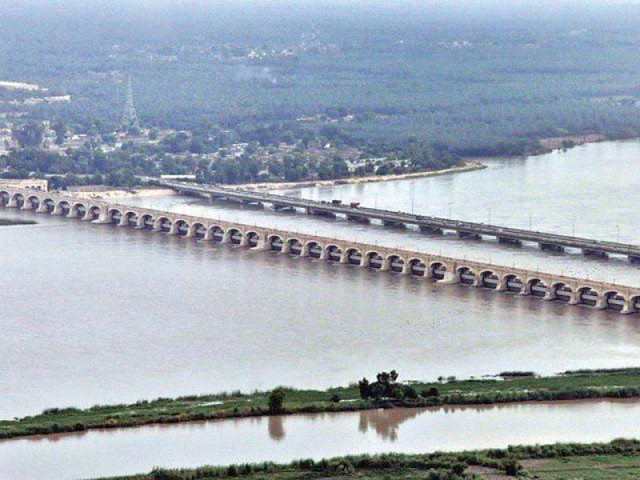Water-sector management: Govt borrows $35m to spend on salaries, studies
Acquires additional funds despite mounting foreign debt burden

An amount of $10.6 million will be utilised for building capacity and providing support to institutions of the federal and provincial governments in water resources planning and management. PHOTO: FILE
The government on Wednesday signed a $35 million loan agreement with the World Bank which will be spent on paying salaries and conducting studies for water-sector management - a task that could have been performed without borrowing in dollars which will only add to the mounting foreign debt pile.
Economic Affairs Division Secretary Tariq Bajwa and World Bank Country Director Patchamuthu Illangovan signed the $34.95 million loan document as additional financing for the water sector capacity-building advisory services project, according to an official statement.
The project is being implemented since 2008 when the World Bank approved a $38 million loan. It was supposed to be completed by 2014 but was extended for a year, as has been the case with many foreign-funded projects.

Under the $38 million financing, 18 out of 20 studies were completed and the remaining would be undertaken with the help of additional financing.
With the fresh borrowing of $35 million, total financing for the project has reached $73 million. The country will return the loan over the next 25 years and it carries about 1% interest in dollars.
The project objective is to improve the management and investment planning for water resources in the Indus River basin. An amount of $10.6 million will be utilised for building capacity and providing support to institutions of the federal and provincial governments in water resources planning and management, according to the project documents.
Another $7.23 million will be spent on project management and additional studies. For improvement in water resources management and development, $17.2 million will be spent.
Keeping in view the significance of water and energy resources, the government had requested the World Bank for the additional financing of $35 million, said the Ministry of Finance.
However, the loan was acquired despite warnings from independent economists and Moody’s credit rating agency about sustainability of the country’s external debt.
Hardly three months ago, Moody’s had warned that Pakistan’s debt affordability had weakened after it switched to unconventional loans by floating $3.5 billion worth of international bonds.
Apart from this, the government got $956 million in external loans from commercial banks in the past four months. The International Monetary Fund has projected that Pakistan’s external debt will grow to $70 billion by June this year.
“The project will improve management of the Indus basin in Pakistan,” tweeted World Bank’s Illangovan after the signing ceremony. He listed Pakistan among countries most affected by climate change.
Although $35 million appears to be a small amount, its utilisation raises questions over the need assessment, as salaries of consultants can be paid and studies undertaken without acquiring foreign loans.
“Foreign loans are only productive when these are utilised for asset building as this provides a source of earnings to return the loans,” argues economist Dr Kaiser Bengali in his recent study.
He said the statistics suggested that with a shift in focus from project to programme loans, the country’s infrastructure was being completely ignored and it had started collapsing.
World Bank documents say Pakistan has begun ramping up investments, beginning with the urgent rehabilitation of barrages. Yet, there remains a need for significant new investment, not only in irrigation but also in other uses of water, including hydroelectric power generation and urban-industrial and domestic supplies.
It says half of the population is not served by a formal supply system and sanitation and water treatment reaches less than 10% of the population.
However, critics argue instead of spending money on studies, funds can be utilised for infrastructure building.
Published in The Express Tribune, January 28th, 2016.
Like Business on Facebook, follow @TribuneBiz on Twitter to stay informed and join in the conversation.





1733130350-0/Untitled-design-(76)1733130350-0-208x130.webp)











COMMENTS
Comments are moderated and generally will be posted if they are on-topic and not abusive.
For more information, please see our Comments FAQ